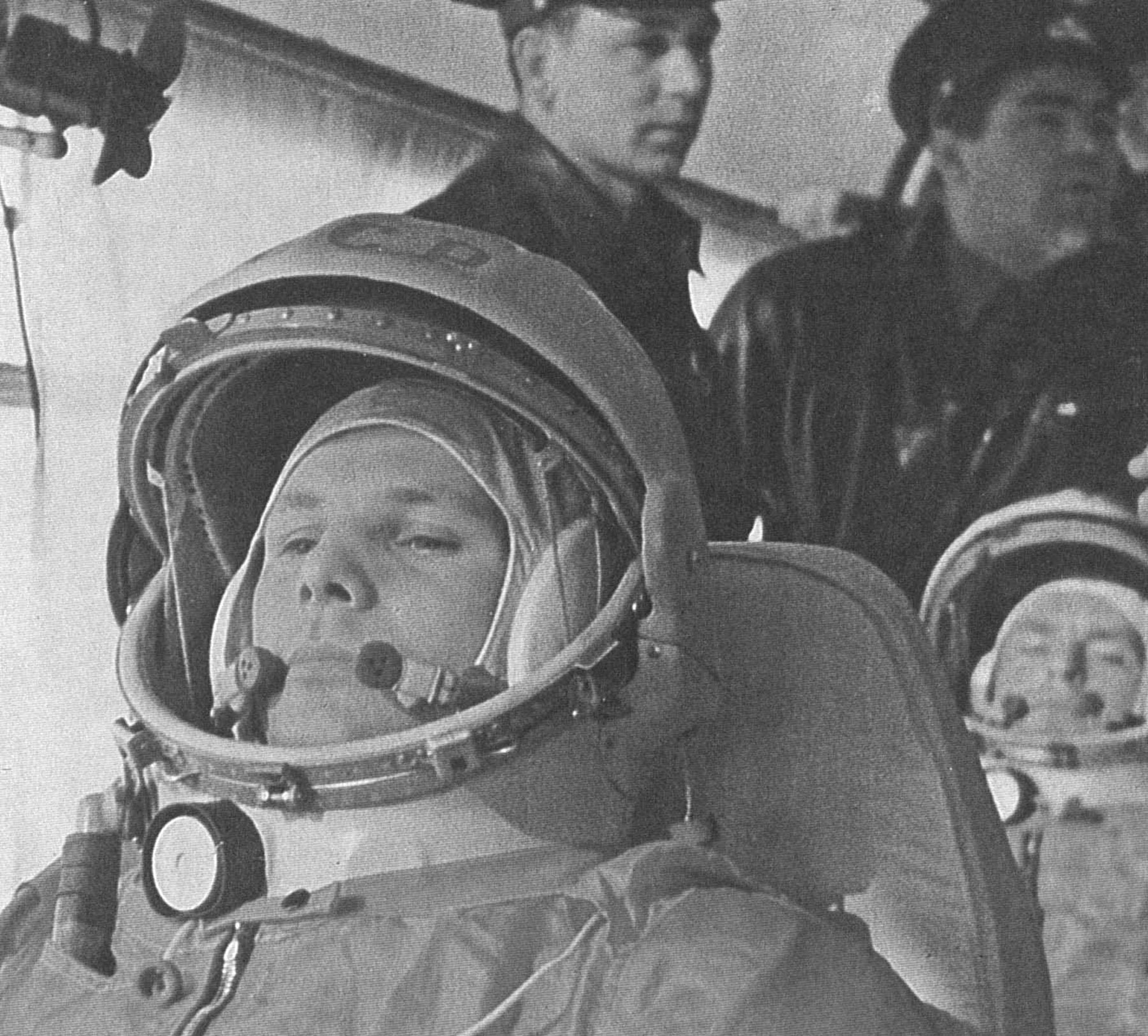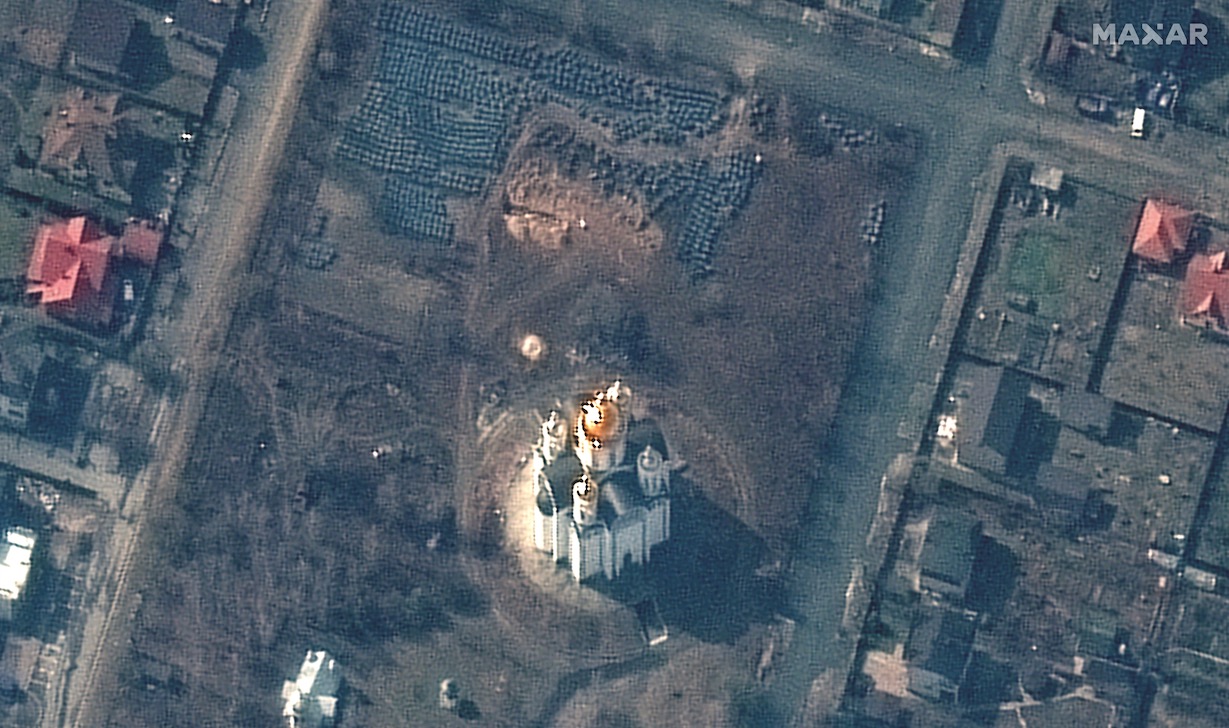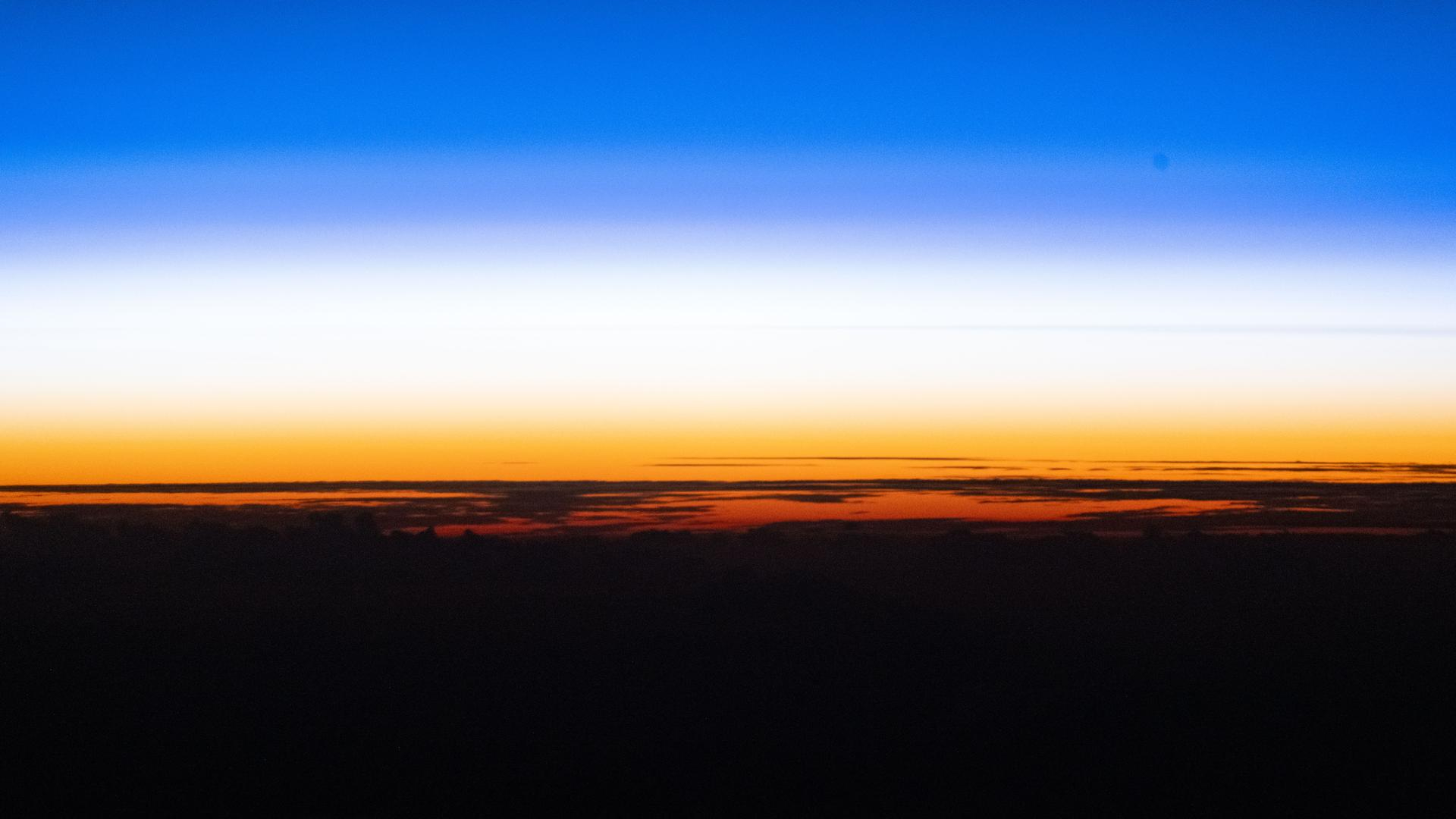61st anniversary of human spaceflight marred by Russian invasion of Ukraine
Yuri Gagarin launched to Earth orbit on April 12, 1961.

Humanity took a giant leap 61 years ago today (April 12), but marking the milestone is far more complicated than usual this year.
Cosmonaut Yuri Gagarin launched to Earth orbit aboard the spacecraft Vostok 1 on April 12, 1961, becoming the first person ever to reach space. The landmark moment continued a string of space firsts for the Soviet Union, which kicked off the space age with the launch of the satellite Sputnik 1 in October 1957.
After the Soviet Union dissolved in 1991, Russia picked up the reins of the Soviet spaceflight programs, both robotic and human — including the now-retired Mir space station.
Live updates: Russia's Ukraine invasion and space impacts
Russia came into the international fold of spaceflight endeavors and stayed there for a generation. It even notched a starring role as the co-managing partner of the International Space Station (ISS) program alongside NASA.
Indeed, Russia was the only nation that could get astronauts to and from the station from July 2011, when NASA retired its space shuttle fleet, to May 2020, when SpaceX carried people to the orbiting lab for the first time.
But Russia's space partnerships have splintered in the wake of its Feb. 24 invasion of Ukraine. The country halted the use of Russian-built Soyuz rockets at Europe's Spaceport in French Guiana, for example, and no longer sells Russian engines to American companies. And Russia's federal space agency Roscosmos is threatening to withdraw from the ISS program unless newly imposed sanctions are lifted.
Breaking space news, the latest updates on rocket launches, skywatching events and more!

Roscosmos chief Dmitry Rogozin has spoken out several times about the sanctions. On April 2, for instance, he said that international projects including the ISS will only continue "with the complete and unconditional lifting of illegal sanctions." (He tweeted in Russian, and the translation was provided by Google.)
Rogozin is famous for hyperbolic statements, so his comments should be taken with a grain of salt. NASA has emphasized repeatedly that ISS relations remain normal, and that assertion was bolstered when American astronaut Mark Vande Hei came back to Earth aboard a Russian Soyuz spacecraft on March 30 alongside two cosmonauts, landing in Kazakhstan with no issue.
The ISS is practically the only space collaboration Russia has left amid numerous shattered international partnerships. In addition to the examples given above, the life-hunting Mars rover Rosalind Franklin likely won't be able to launch this year as planned. Rosalind Franklin is part of ExoMars, a joint effort of Russia and the European Space Agency. The rover was supposed to lift off atop a Russian rocket, but that doesn't look like it's going to happen now.
Last month, at a meeting in Paris, ESA's ruling council "acknowledged the present impossibility of carrying out the ongoing cooperation with Roscosmos on the ExoMars rover mission with a launch in 2022, and mandated the ESA director general to take appropriate steps to suspend the cooperation activities accordingly," ESA officials noted.
The council also "authorized the ESA director general to carry out a fast-track industrial study to better define the available options for a way forward to implement the ExoMars rover mission."
And the London-based company OneWeb was forced to ask SpaceX, a competitor, to launch some its OneWeb internet satellites after a deal to fly aboard Soyuz rockets operated by European company Arianespace fell through.
Arianespace has lofted many OneWeb satellites using Soyuz rockets over the past few years. But shortly after the invasion of Ukraine, Roscosmos issued demands ahead of a coming OneWeb launch, insisting that OneWeb guarantee the spacecraft wouldn't be used for military purposes and that the United Kingdom divest itself from the company. Since the demands weren't met, Roscosmos rolled the Soyuz off the launch pad, satellites in tow.
And it doesn't appear that Russia will attempt to mend fences any time soon, given that much of Ukraine remains under siege and satellites continue to beam down horrific imagery, such as photos of a mass grave in the Ukrainian town of Bucha.
The United Nations estimates that 4.5 million people have fled Ukraine, which is roughly 10% of the country's population. (Ukraine's estimated 2021 population was 43.7 million, according to the CIA Factbook.)
Follow Elizabeth Howell on Twitter @howellspace. Follow us on Twitter @Spacedotcom or Facebook.

Elizabeth Howell (she/her), Ph.D., was a staff writer in the spaceflight channel between 2022 and 2024 specializing in Canadian space news. She was contributing writer for Space.com for 10 years from 2012 to 2024. Elizabeth's reporting includes multiple exclusives with the White House, leading world coverage about a lost-and-found space tomato on the International Space Station, witnessing five human spaceflight launches on two continents, flying parabolic, working inside a spacesuit, and participating in a simulated Mars mission. Her latest book, "Why Am I Taller?" (ECW Press, 2022) is co-written with astronaut Dave Williams.
